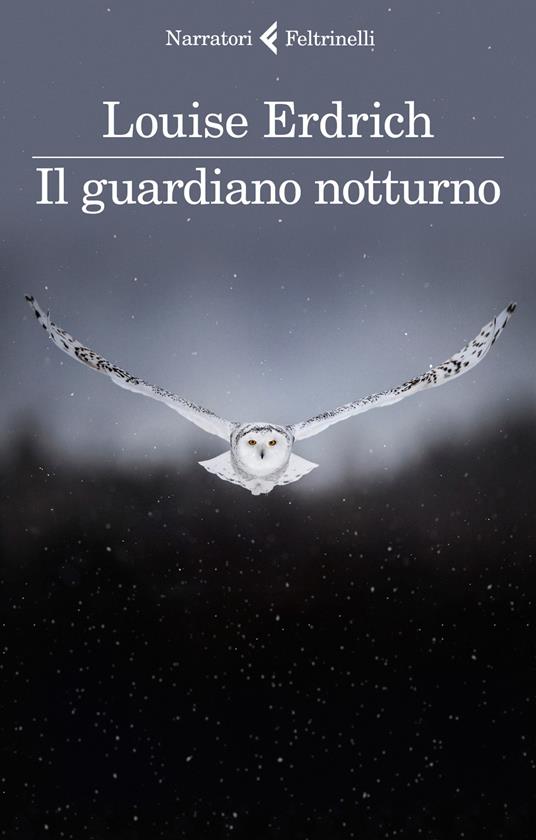
“Thomas Wazhashk slipped the thermos out from under his armpit and placed it on the steel tray next to the scarred bag. The canvas work jacket landed on the chair, and the food container on the cold window sill. When he took off his padded cap, a wild apple fell out of the ear flaps. A gift from his daughter Fee. He grabbed it and placed it in plain sight on his desk. Then he stamped his time tag. Midnight. He took the ring of keys, and a company torch and began the tour of the ground floor.
In that great silent space, always silent, the women of Turtle Mountain spent their days hunched over in the harsh light of work lamps. The women glued microscopic sections of ruby, sapphire, or the less precious garnet, onto thin vertical spindles ready to be drilled. The rubies were intended for Department of Defense equipment and Bulova watches…”
Thus begins the gripping novel in which Louise Erdrich talks about a time when Native Americans risked the extinction of their people. On August 1, 1953, the United States Congress announced the House Concurrent Resolution 108, a bill that would have repealed bilateral treaties with Native nations that should have lasted “as long as the grass grows and the rivers flow.”
The announcement implied the ultimate extinction of all tribes and the immediate extinction of five tribes, including the Turtle Mountain Chippewa tribe living in North Dakota. Nightwatchman Patrick Gourneau, the author’s grandfather and tribal president, fought the measure and won.
Patrick Gourneau is the only “true” character in the novel who narrates the many lives of a community capable of solidarity, which is asked to “integrate” into an overwhelming culture that self-absolves the attitude of exploitation of human beings and environments that it occupies without restraint.

Publisher: Feltrinelli, 2021 | Pages: 432 p., Paperback | EAN: 9788807034763
The realistic and moving cross-section through which the author narrates the stories of the characters, which are outlined with great skill, shows a people with a profound spirituality, linked to nature in a harmonious and indissoluble way.
The book, winner of the Pulitzer Prize for Fiction 2021, highlights how much the meeting of the peoples who gave rise to the United States represented a missed opportunity to learn to live together respecting cultures and languages, people and places, while failing to save thoughts and knowledge that the native peoples had elaborated.
According to Luigi Luca Cavalli Sforza in the essay “Geni, popoli e lingue” (Geniuses, peoples and languages), whose review is present in our “Reading Tips” and which we invite you to read again, the loss of languages and cultures goes hand in hand with the loss of biodiversity. https://www.earthgardeners.it/2017/12/12/leggimi-novembre-dicembre/
We, therefore, think that this volume, as well as being a pleasant and stimulating read, contains much food for thought at a time when wars and the mismanagement of natural resources are jeopardizing the very existence of mankind.
Credits
Authors:
Anna Lacci is a scientific popularizer and expert in environmental education and sustainability and in territory teaching. She is the author of documentaries and naturalistic books, notebooks and interdisciplinary teaching aids, and multimedia information materials.
Maria Beatrice Lupi, a naturalist and expert in training, planning for sustainable development, participatory methodologies, and European planning. Currently, she is involved in dissemination and education for sustainability.
Translation by Maria Antonietta Sessa



